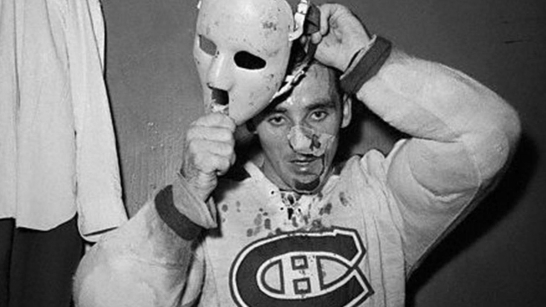Stress level for goalies higher than what skaters must suffer

Original Source: Stan Fischler: NHL.com Contributor
Posted on: Nov 09, 2017
Injuries, ulcers, loneliness all part of the job
"Goalies are always alone. They are probably the loneliest guys in the world."
That was how Johnny Gottselig, who played 16 seasons for the Chicago Blackhawks from 1928-45, described those who play the position. According to Gottselig, puck-stoppers feel extra strain and never seem to have peace of mind.
During the pre-mask era of the 1940s, New York Rangers Hall of Fame goalie Chuck Rayner once put it more succinctly: "You have to be nuts to be a goalie."
And when a reporter asked Rayner what he would do if his son ever picked up a goalie stick, he replied, "I'd hit him over the head with it."
A few decades later Blackhawks goalie Glenn Hall was so affected by his work that he vomited before every game.
"To me," Hall once told this reporter, "goaltending is 60 minutes of hell." Nevertheless, he played 503 consecutive games, all without a mask.
Hall merely was maintaining a heroic tradition of goaltending dating back to hockey's earliest days. One of the first of the outstanding goalies to succumb to injuries and exhaustion was Clint Benedict.
Benedict broke in as a pro with the Ottawa Senators of the National Hockey Association during the 1912-13 season. Watching him in action, you could understand why puck-stopping was, and still is, considered the toughest job in sports.
"After the first couple of seasons," Benedict said, "I lost count of the stitches they put in my head. They didn't have a goalie crease in those days and the forwards would come roaring right in and bang you as hard as they could. If they knocked you down you were supposed to get back on your feet before you could stop the puck. Those were the rules."
Benedict absorbed terrifying punishment for eighteen seasons, with the Senators and Montreal Maroons. "I remember at least four times being carried into the dressing room all stitched up and then going back in to play," he said.
Benedict was ranked alongside Georges Vezina, George Hainsworth as a superior goaltender in the early days of the NHL, and won the Stanley Cup four times (1920, 1921, 1923, 1926).
One of his noteworthy contributions to the art of goaltending was his innovative decision to fall on the ice to block a shot. Until Benedict came along, it was traditional for goaltenders to remain upright throughout the game.
"It actually was against the rules to fall to the ice," he said. "But if you made it look like an accident you could get away without penalty. I got pretty good at it and soon all the goalies were doing the same thing. I guess you could say we all got pretty good at it about 1914, and the next season the league had to change the rule."
Benedict's revolutionary maneuver was greeted with the same hostility as Jacques Plante's decision to wander out of his net when he played for the Canadiens in the 1950s. When he hit the ice the fans shouted, "Bring your bed, Benny!"
More beleaguered a goalie than Benedict happened to be was the Toronto Maple Leafs' Frank McCool, whose career encompassed two seasons and one Stanley Cup.
McCool helped the Maple Leafs win the Stanley Cup in 1945 but he was gone from the NHL almost as quick as he arrived. His problems were rooted in perennial stomach aches brought on by stress.
"I quit early, mainly because of ulcers," McCool said. "Why I had ulcers I don't know, but it didn't help being a goalie. It's the toughest, most underappreciated job in sports. CLICK HERE to keep reading....
